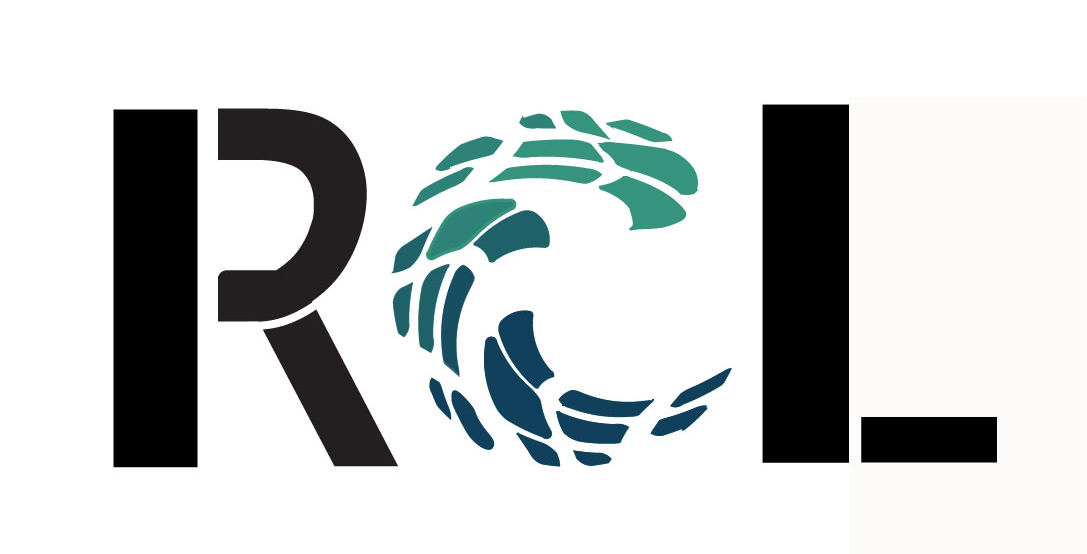Equitable Resilience Framework
Climate will disrupt the fundamental conditions that human societies depend on to thrive. Its impacts will also be profoundly unequal. While some individuals and communities will have the resources to adapt to avoid the worst impacts of climate change, others will find their homes becoming uninhabitable, their livelihoods vanishing, and their health and security threatened by a changing climate. Underserved and low-income neighborhoods lack infrastructure to protect residents from hazards like excessive heat and floods. Indigenous peoples face an existential threat—their survival is dependent on a rapidly changing ecosystem.
Climate policy needs to change. The history of social engineering projects shows that top-down climate solutions fail vulnerable communities. The Equitable Resilience Framework (ERF) is a toolkit for policymakers for community-led planning, decision-making, and communication. The ERF's outcomes are solutions that are fair and equitable, increase climate resilience, address basic human needs, and lead to long-term structural change.
Developed in collaboration with specific communities in the greater Boston region, the ERF combines a capabilities approach with enhanced tradeoff analysis and knowledge convergence to bring community, academic, industry, and policy stakeholders together in generating and implementing resilience solutions. The ERF addresses the technocratic shortcomings that have historically guided resilience projects.
By reconceptualizing the linkages between resilience and equity in communities, the ERF gives researchers and practitioners better theoretical and practical tools for applying resilience to interconnected social systems across different timescales. The ERF facilitates just solutions while empowering communities often overburdened by environmental injustice and climate change impacts.
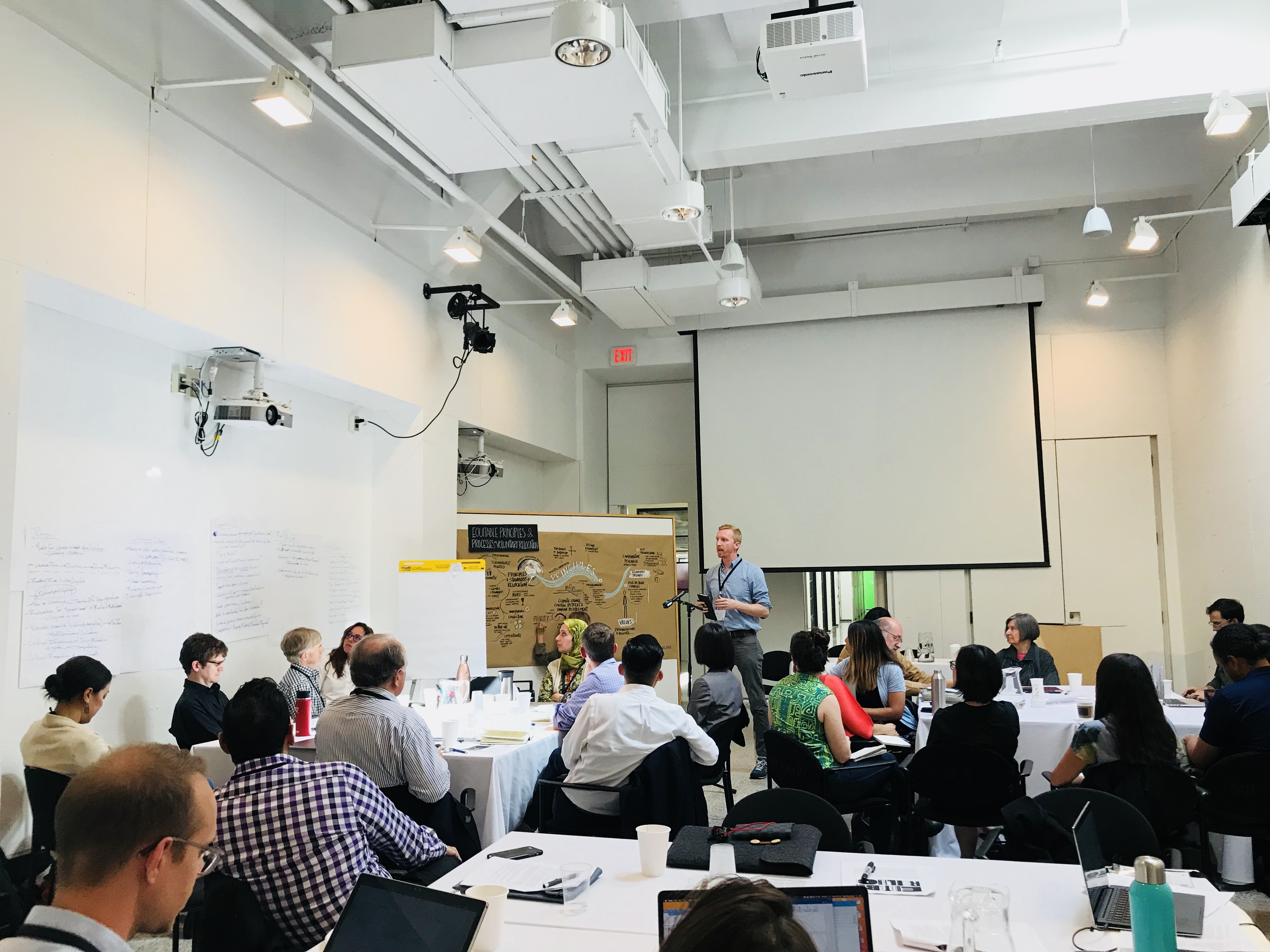
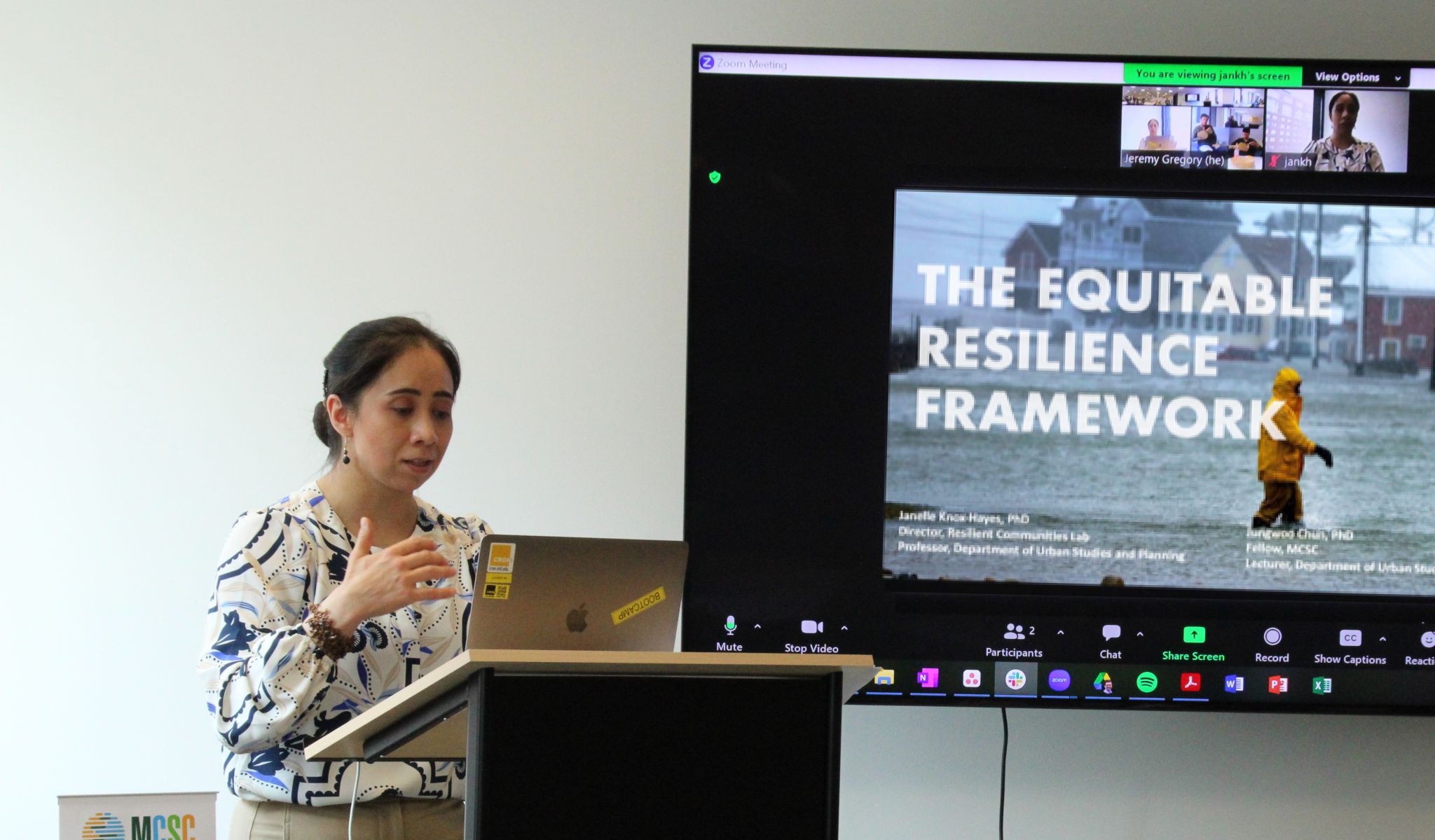
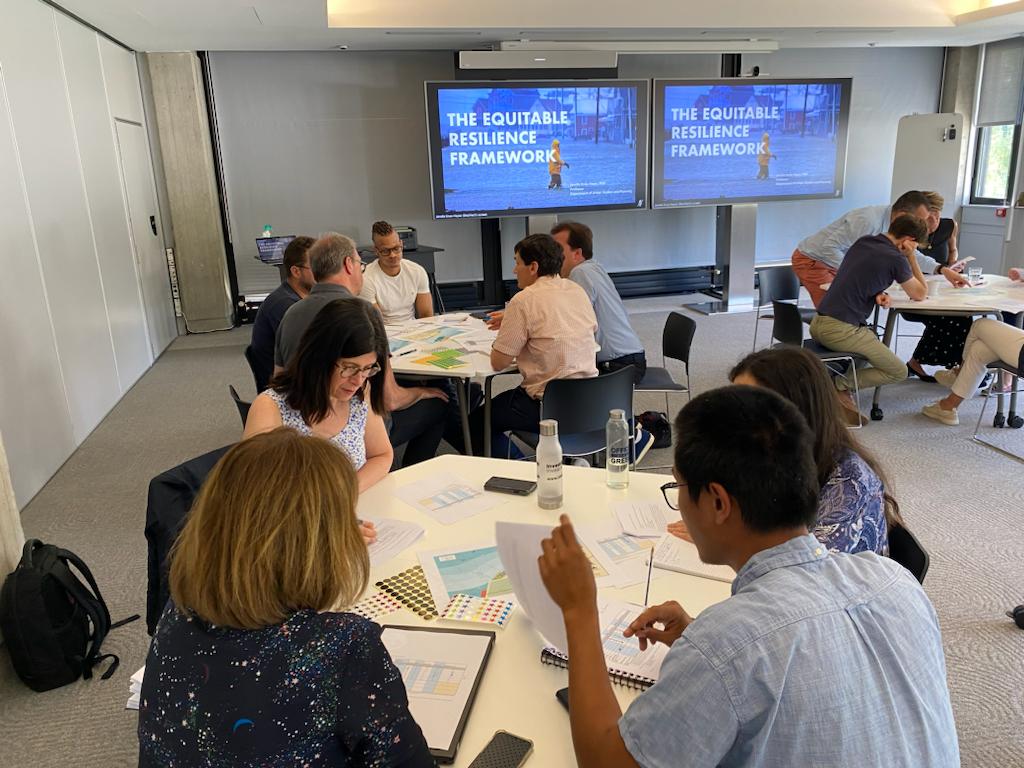
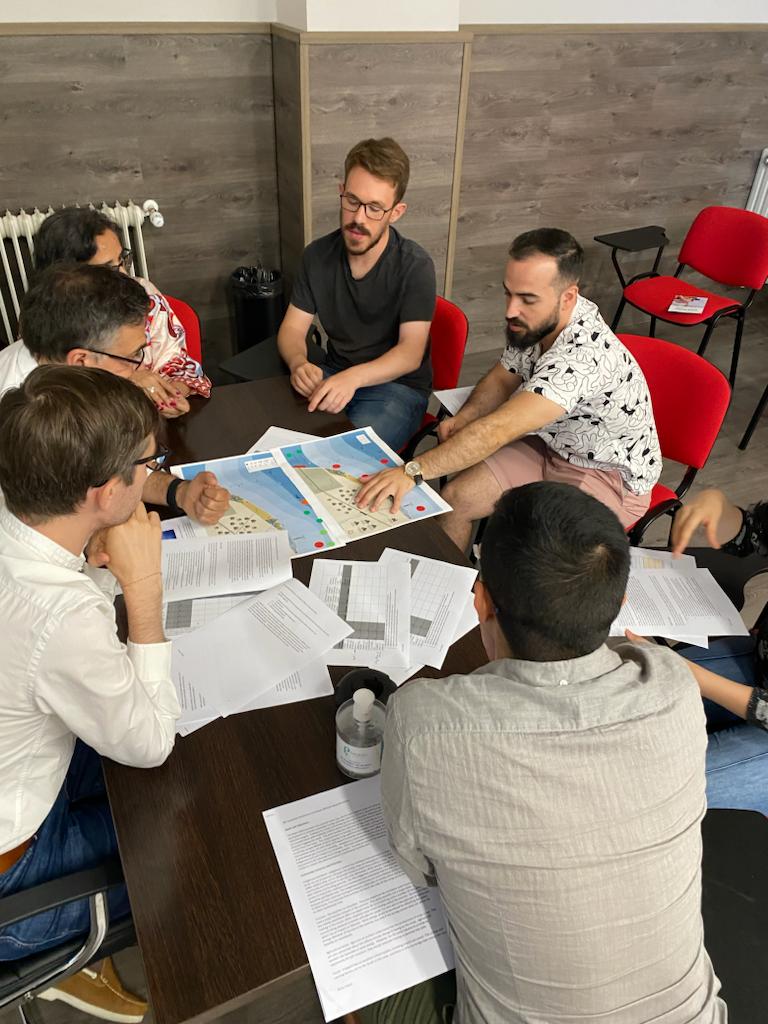


Images from ERF workshops
ERF pillars
- Capabilities Approach: Rather than look to simplistic economic measures, like income, consider a more holistic understanding of human flourishing through the development of human capabilities (such as life, health, mobility, education). Local communities determine which capabilities to prioritize. Policy is designed with regard for local infrastructure, culture, and values.
- Modified Trade-Off Analysis: Integrates strategies for problem formulation, stakeholder and power analyses, consensus building, and multi-criteria analysis to arrive at transparent, equitable, and effective solutions.
- Knowledge Convergence: Increases knowledge among local communities, governments, and scientists using transmedia communication, data visualizations, artistic interventions, and community science and data integration. Public communication about climate science uses multiple channels, and diverse sources of knowledge (including Traditional Ecological Knowledge) are recognized.
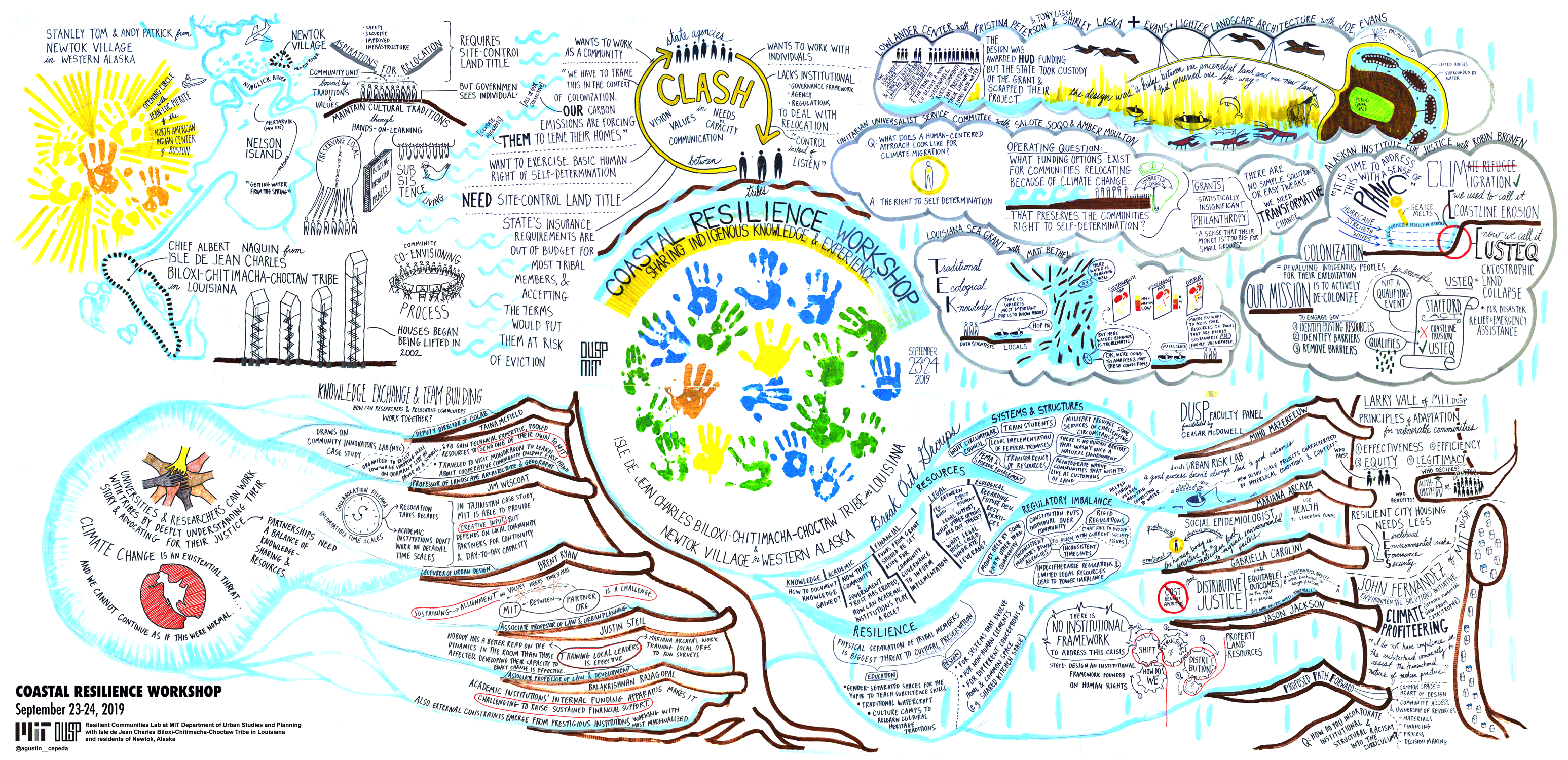
Publications
“Equitable Resilience Framework” (Click here to download)
